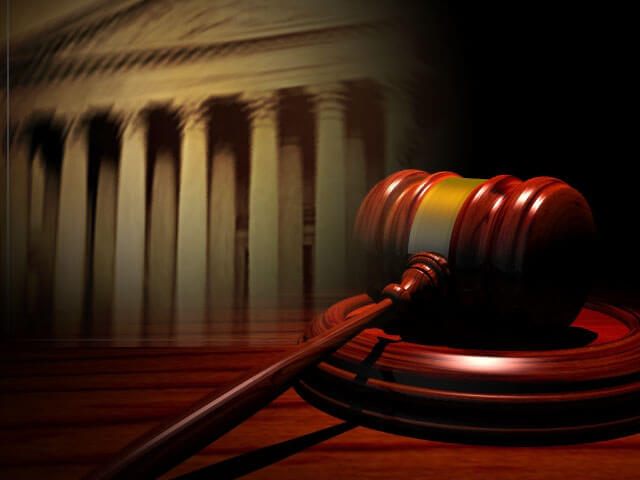Employers Challenge H-1B Denials and Win!
With the exponential rise in H-1B denials, we recommend that employers challenge erroneous USCIS decisions in Federal Court. Three recent decisions by Federal Judges pave the road to success.
H-1B denial rates increased from 6% in fiscal year 2015 to 21% in fiscal year 2019. The denial rate for H-1B extensions increased to 12%.
The laws and regulations governing the H-1B category have not changed. Instead, the U.S. Citizenship and Immigration Services (USCIS) has been interpreting existing regulations in a more restrictive manner than is legally permissible.
Client Reviews

Great Work!
“We are very pleased by the services we get from the Law Offices of Carl Shusterman. Our experience in the past year with all our H1B renewals has been amazing, and we’ve obtained great results.”
- KRG Technologies, Valencia, California
Read More Reviews
Zoom Consultations Available!
Successfully Challenging H-1B Denials in Federal Court
 An increasing number of employers have successfully challenged H-1B denials in Federal Court.
An increasing number of employers have successfully challenged H-1B denials in Federal Court.
Federal regulations provide that a job is an H-1B specialty occupation if “a baccalaureate or higher degree or its equivalent is normally the minimum requirement for entry into the particular position.”
However, in the last few years, USCIS has issued thousands of H-1B denials on the grounds that a Bachelors degree in a particular subject is not “always” a prerequisite for the job.
In 3 separate U.S. District Court decisions in March 2020, Federal Judges ruled that this is not a valid reason for denying an H-1B petition. The regulation defining what is a specialty occupation states that a Bachelors degree must “normally” be the minimum requirement for the job. Therefore, the USCIS is not permitted to require that the degree must “always” be required for the job.
A good example of this is the March 31 decision in Taylor Made Software v. Cuccinelli. There, a Chicago-based computer development company filed an H-1B petition for a computer systems analyst. The beneficiary had an M.S. in Computer Science from the University of Illinois.
The USCIS denied the petition relying on the U.S. Department of Labor Occupational Outlook Handbook (OOH). The OOH’s entry for computer systems analyst states that a “bachelor’s degree in a computer or information science field is common, although not always a requirement. Some firms hire analysts with business or liberal arts degrees who have skills in information technology or computer programming.”
The Federal Judge disagreed with USCIS’s reading of the OOH. The Court found that the OOH description of the requirements to be a computer systems analyst supports the proposition that “a baccalaureate or higher degree or its equivalent is normally the minimum requirement for entry into the particular position.” The Court stated that “the regulatory criterion is not whether such a degree is always required”, but whether a specialty degree is “normally” required.
Further, the Court pointed out that the USCIS failed to cite the language in the OOH which notes that “most computer systems analysts have a bachelor’s degree in a computer-related field.”
The Federal Judge granted the employer’s Motion for Summary Judgment and remanded the case to the USCIS.
A similar decision was rendered on March 6 in 3Q Digital, Inc. v. USCIS by a Federal Judge in the District of Columbia. There, a digital marketing company challenged the denial of an H-1B petition filed on behalf of a Search Engine Marketing Account Manager with a B.A. in Economics from the University of Massachusetts.
The Federal Judge held that the USCIS improperly substituted the word “always” for the word “normally” in the governing regulation. Based on this, the Court held that the USCIS acted “arbitrarily and capriciously” in denying the H-1B petition. The Judge ordered the USCIS to approve the petition.
On March 26, a Federal Judge in Rhode Island, in India House, Inc. v. Kevin McAleenan, ruled that the Administrative Appeals Office (AAO) acted “arbitrarily and capriciously” in upholding the denial of an H-1B petition for an employee on whose behalf H-1B status had been granted by the USCIS twice before, first in 2013 and again in 2016. The employee was the Chief Operating Officer of a multi-faceted restaurant group with a B.S. in Hospitality Management from the Johnson and Wales University in Providence, Rhode Island.
The Federal Judge ordered the DHS to grant the H-1B petition.
Challenging H-1B Denials – The Road Ahead
These recent decisions show that various Federal Judges believe that the USCIS is misinterpreting immigration regulations.
As a former INS Attorney (1976-82), I believe that the best way to make the government stop issuing erroneous H-1B denials is for more employers to challenge these denials in Federal Court.
On April 16, 2020, the American Immigration Council filed a nationwide class action lawsuit challenging the USCIS’s pattern of unlawfully denying H-1B petitions for market research analysts.





